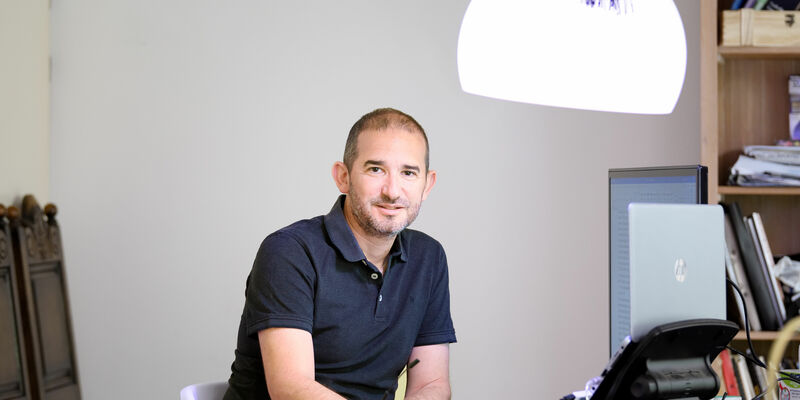Looking for a carrot
One of the big ideas behind higher education is ownership. Universities have an image in mind of an ideal student when they begin their work on defining a vision for their education. The TU/e is not different in that respect and our Educational Vision 2030 suggest that in eight years’ time we will no longer need ‘to teach students’ in the lecture halls (if they actually chose to come) but instead we will educate them to be ‘learners’. According to that vision ‘new generations of students will have new methods for acquiring knowledge and will want to navigate their own learning paths’.
Asking ownership from students just arriving from high school is a rather big request. Afterall, just a couple of months earlier the only thing they were owning was a calculator to figure out what the minimum grade is they need to get for a given exam to get their high school diploma. When they enter the university, we explain to them that those days are over. Now they are students, and they should take the time to learn on their own - hence the term ownership.
We also tell them that they and they alone are responsible for their success and that we will no longer check if they show up to class. Of course, even if we do not tell it to students, the biggest stick we have to make sure they do not get lost, is the infamous binding study recommendation (BSR). The BSR has been around for thirty years now (TU/e introduced it in the academic year 2009-2010). It stipulates that at the end of their first year, students are expected to obtain a minimum number of academic credits to be allowed to continue their studies at the same faculty and university. In essence full independence is offered to student as long as they get enough academic credits at the end of the first year.
Two implications of implementing a BSR are undisputed. First, the positive, the yield of many studies has increase dramatically. From my own faculty I know that this number has shot up from <10 percent in 2010 to around 50 percent in 2022. Clearly it is a very effective tool to get students to get on with it and finish their studies. The second aspect is the growing mental pressure that students experience. Last November RIVM, the Dutch National Institute for Public Health and the Environment, published a report stating that 51 percent of students experience mental problems. Of course, this was done after 1.5 years of corona, but even before covid, studies showed that the BSR increases anxiety and stress with first year students.
But there is one darker side to the BSR that very few people talk about. It is the question what students actually learn in their first year? If failing four out of twelve courses means you are expelled from the university and your studies and must start everything from scratch, it is not surprising that the onlything that matters for first year students is the grade. Hence you do not learn, you memorize old exams, and hope that this year’s exam will be a minor variant of last year’s one. Consequently, you don’t really worry about how an electrical circuit works or how a chemical reaction takes place but more about how the solution should look like for a given combination of variables. This delivers shallow learning (and in some cases no learning whatsoever) and when successful it becomes the go to method for studying.
The BSR is an effective tool for forcing student to engage with the offered courses. It uses fear to stimulate the desired effect – higher success rates after the first year. Most students will drop their study tempo significantly once the BSR is obtained. A study conducted in Rotterdam showed that students who were exposed to a draconian BSR of 60 EC's in the first year (at the Erasmus University they call it N=N for nominal progress) demonstrated similar levels of motivation, self-regulation and academic performance as students under far less stringent assessment policy.
While putting young people under significant mental pressure is a bad thing always, it could have been justified from the perspective that without it, they will not be able to come up with the required discipline to adopt the learning mentality. But if the result is that students in their first year in the university 'learn' to focus on passing exams and not understanding the fundamental aspects of their future profession - and the first year is full of fundamental knowledge - than we do not service students nor their future employers.
Above all we do not serve the ideal of educators in universities to convert students into learners. As at the end the only thing teachers want is to transfer to their students the knowledge they have and hopefully make them curious enough about the discipline so that they become learners. Maybe it is time to consider abolishing the BSR in search of a new way to make sure students become learners. I mean, if the stick does not work maybe we should look for a carrot?

Discussion